AOC’s AGON gaming monitors all have such a similar core design that it’s almost impossible to tell them apart at a glance. It’s a good thing, then, that the company has chosen a design that, for the most part, looks quite nice.
An all-metal, silver-coloured stand is the highlight. It’s sturdy, simple and elegant, and sets off the black frame of the display nicely. Less convincing is the frame itself. Mostly plain matt black plastic, the bottom section of bezel has a faux brushed metal effect and a rather uninspiring red AGON logo in the middle. It’s not totally off-putting but it’s not quite on the level of the most stylish displays.
Meanwhile, round the back the “gamer” styling is cranked up several notches as the mostly matt black plastic rear is bisected by a large “V” shaped red section. It’s not too garish but a paragon of style it isn’t. Nonetheless, overall build quality is excellent, with a sturdy feel to both the stand and the display.
It’s also a versatile stand. It provides height, tilt, rotation and pivot adjustment and does so with smooth, precise and reassuringly firm movements.
On the side of the stand’s upright there’s also an indicator that can be used to record your preferred monitor height and tilt angle. Once dialled in, it makes it easy to reset your display at just the right position.
The top of the stand also doubles as a carry handle and you can remove the stand altogether and affix a provided adapter that allows you to use other standard 100x100mm VESA mount stands.
On the right edge is a favourite AOC feature which is a cluster of connectivity and a headphone stand. The latter is just a flip-down plastic arm, but it provides a really convenient spot to quickly hang your headphones. Below this there’s also the sockets for your headphones and microphone, as well as a couple of USB 3.0 ports. The yellow port also supports fast-charging.
Alongside the power socket on the underside of the red “V”, you get a further couple of USB 3.0 ports. On the other side of the “V” are the DisplayPort and HDMI video inputs and a microphone output that carries the audio from your headset back through to your PC.
Inside you also get a pair of 2W speakers, the audio for which comes via the video connections – there’s no analogue audio input. The speakers are fairly weedy but it’s useful to have them just in case. The headphone jack auto-mutes the speakers when used.
On the underside of the display’s frame is the power button alongside the OSD controls, which consist of Input/Back, Left, Right and OK/Menu buttons. With its non-G-Sync displays AOC also provides a useful wired remote for controlling its OSD. However this isn’t compatible with G-Sync so you miss out on it here.
What you do get in the box, though, are HDMI, DisplayPort and USB cables so you’re all set for getting every port connected. As with many G-Sync displays, there’s no room for an internal power supply so an external power brick is required, which is slightly less convenient than a standard IEC ‘kettle’ lead.
 KitGuru KitGuru.net – Tech News | Hardware News | Hardware Reviews | IOS | Mobile | Gaming | Graphics Cards
KitGuru KitGuru.net – Tech News | Hardware News | Hardware Reviews | IOS | Mobile | Gaming | Graphics Cards


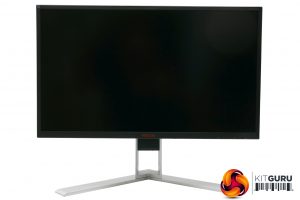
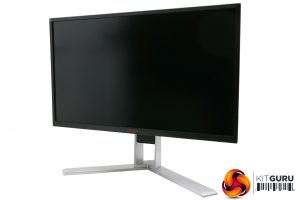
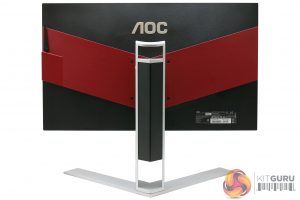
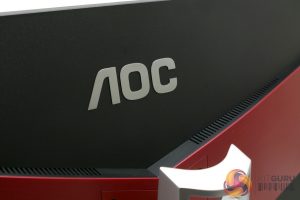
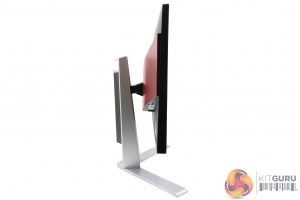
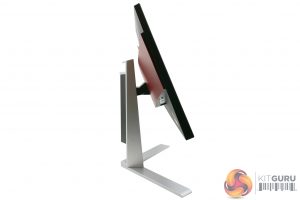
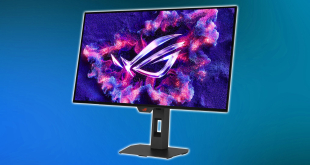
Better go for a compromise: 1440p at 144Hz
Much better. I had a 4k 60hz g-sync monitor. It just doesn’t hack it for gaming
27-inch => not worth for 4K (barely any difference vs 1440p and will need scaling)
60Hz => Who games at 60FPS on PC nowadays? You need to be 75FPS (ultrawide), or 100+.
4ms => OK for 60Hz, but not good for any higher.
DisplayPort (1.2?) => We got DP1.4 already. Why are you implementing old tech?
USELESS monitor for gaming.